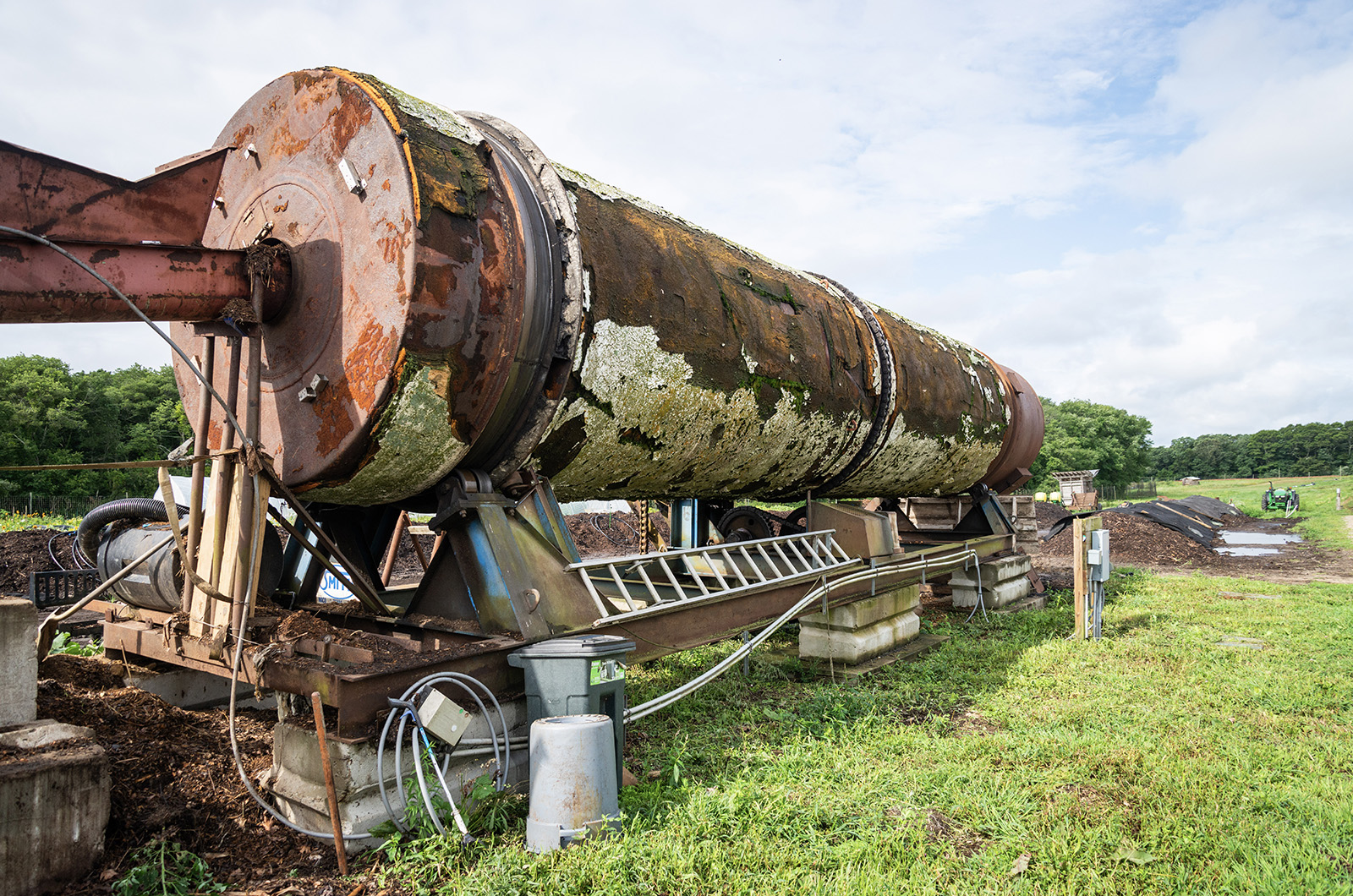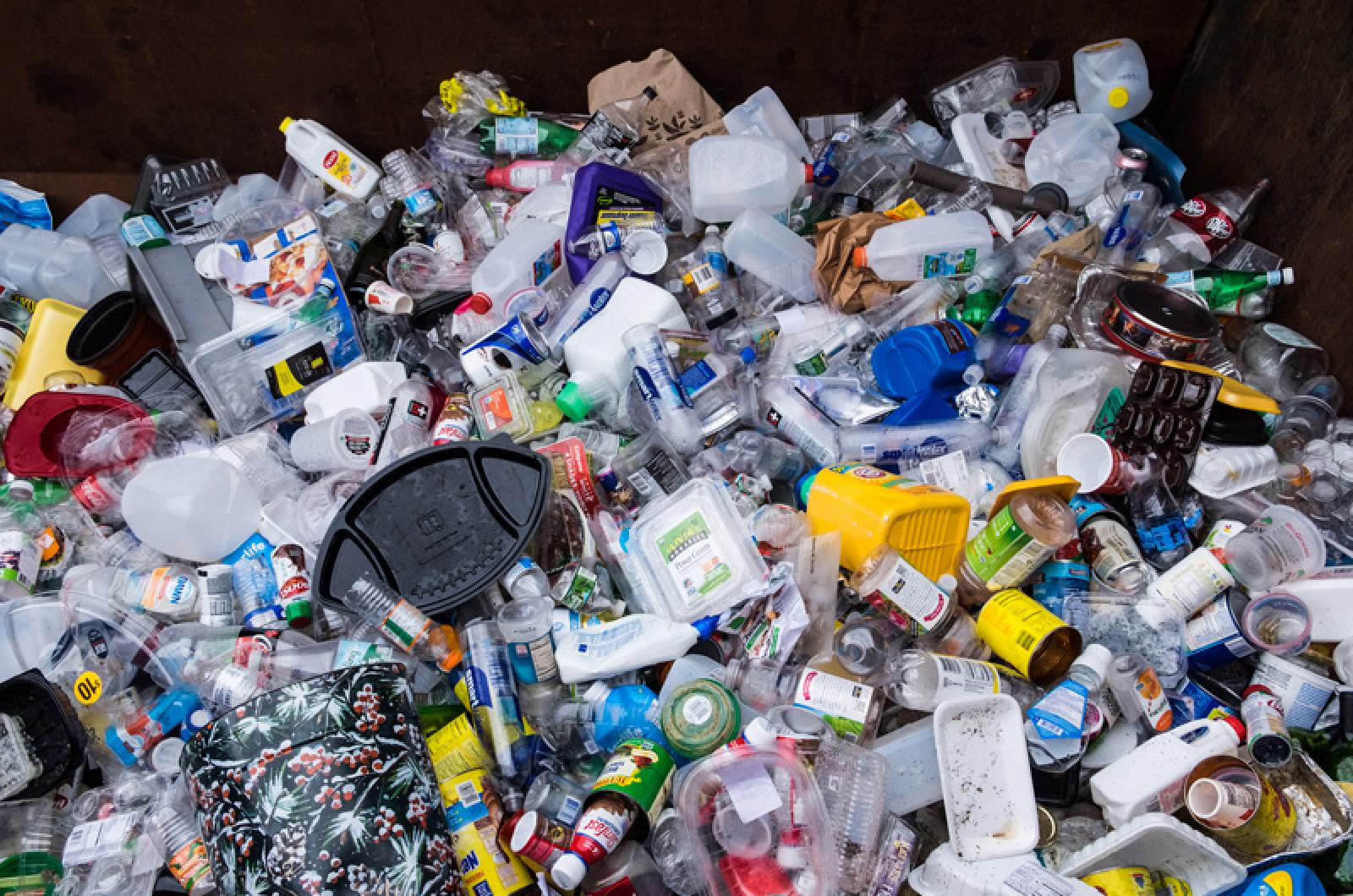When it comes to trash removal on Martha’s Vineyard, numbers tell a compelling story. Last year alone, the Vineyard sent more than 2,000 large trucks off Island packed with the stuff we call solid waste, including garbage, recyclables and construction debris. That’s enough to take up space on some 260 freight ferries.
All municipal solid waste generated by the six Island towns is shipped off-Island in one form or another.
But numbers are only the tip of the iceberg. Against the backdrop of climate change, longstanding government practices seen through today’s lens as inefficient and costly, and a shifting regulatory landscape at the state level, the Martha’s Vineyard Commission has begun a gentle push for the six towns to take a fresh look at how they handle their trash. The regional planning commission is recommending that the towns take a first step by forming an Islandwide task force on solid waste.
“The world is changing,” Adam Turner, the commission’s executive director, told the Oak Bluffs select board at a meeting last month. “We would like the towns to get ahead of it, so we’re not faced with choices we won’t necessarily want to make.”

The move to form the task force comes in tandem with a report released by the commission outlining the current state of trash and recycling on the Island. Commission staff have been making the rounds to Island select boards with the report, which among other things raises questions about how to reduce waste, save money and find better ways to recycle.
At the meetings, Mr. Turner, Kate Warner, the commission’s regional energy planner who prepared the report, and Woody Filley, who contributed to the project, explained the state of waste and recycling on the Vineyard and sought recommendations for the task force.
There are two government entities on the Island for trash removal: the Martha’s Vineyard Refuse District, which includes Aquinnah, Chilmark, Edgartown and West Tisbury, and a separate two-town district which includes Oak Bluffs and Vineyard Haven.
According to the commission report, an estimated 2,110 trucks full of solid waste were taken off-Island last year.
Municipal solid waste, the regular garbage that gets thrown away at the dump, makes up the largest portion of the waste stream. By weight, municipal solid waste makes up about 60 per cent of last year’s waste stream. The commission estimated about 852 trucks of municipal solid waste left last year.
In addition to solid waste, Steamship Authority records show 794 trucks full of recyclables left the Island, as well as an estimated 464 trucks of construction and demolition waste. At the Oak Bluffs meeting, Mr. Filley said 216 truckloads of food waste have been shipped off-Island yearly.
Municipal solid waste is normally taken to a facility in Wareham where it is incinerated. Ms. Warner emphasized both the financial and environmental impacts of shipping waste off-Island. According to the commission, waste is more often being shipped farther south and west, which will increase transportation costs.
“Solid waste and the shipping of trash both contribute to greenhouse gas emissions and shipping trash off-Island is expensive and not popular with our neighbors,” Ms. Warner told the Oak Bluffs select board.
The report also examines how the Island recycles and identifies gaps in the current system.
Both the Martha’s Vineyard Refuse District and the two-town district collect recycling. The two-town district separates mixed paper and cardboard from the rest of the stream, takes them to other facilities and is able to get a higher value for them.
Ms. Warner raised the question of whether there is a better way to handle the process, given the limited space on the Island.
“How can we better handle the separating of materials? We have limited land area with which to process waste, whether for composting or separating various aspects of the waste stream to make it more valuable,” she said.
How best to handle food waste is a question that looms large on the Island. Food waste amounts to about 6,500 tons of waste every year, and the Vineyard’s only large-scale composting program, run by Island Grown Initiative, closed in September after an eight-year run as a pilot.
The state Department of Environmental Protection requires that commercial food waste cannot be thrown out by groceries and restaurants that produce a half ton or more food waste each week, and instead must be composted, recycled or otherwise reused or recycled. Melissa Hackney, the executive director of the Martha’s Vineyard Vision Fellowship, told the Gazette this summer that local establishments will be exempt from the rule due to the lack of a centralized facility. Speaking to the Oak Bluffs select board, Mr. Filley said creating a permanent composting program makes sense for the Island because there is a demand from landscapers, farmers and gardeners for compost on-Island.
The commission report highlights several ways to reduce Island waste beyond composting. Crushing and tumbling glass waste for re-use on sub-roadways is a process underway in the Cape Cod town of Dennis and could be considered here (glass contributes weight to the waste stream, the report notes). Clothing and textile disposal is another area touched on in the report, which notes the success of the West Tisbury Dumptique and floats the idea of whether it could be replicated in other towns.
Mr. Filley suggested that once a task force is formed, hiring a waste consultant could help the Island find a path forward.
“We can get all of the stakeholders together for handling waste on the Island,” he said. “That group could also then select a consultant and get us ready for the future.”
The full report on Martha’s Vineyard solid waste can be found on the home page of the MVC website (mvcommission.org).







Comments (7)
Comments
Comment policy »